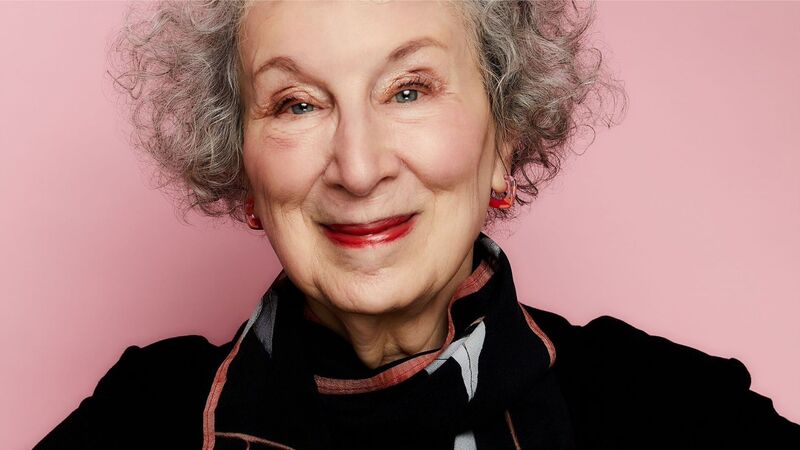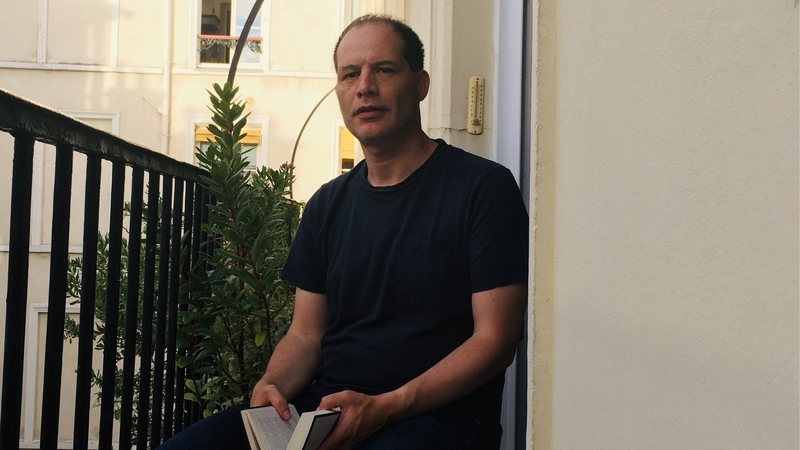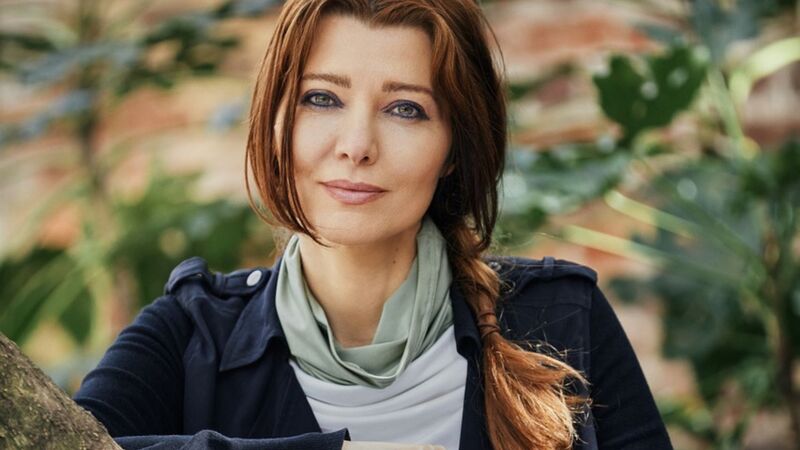You are viewing your 1 free article this month. Login to read more articles.
Trade figures weigh in on Booker Prize longlist as big names dominate
The Booker Prize longlist has been declared “an absolute gift for bookselling” by Waterstones as retailers acknowledged the lack of surprise entries in a year that features literary heavyweights and former winners Margaret Atwood and Salman Rushdie.
Atwood and Rushdie face competiton Goldsmiths Prize-winning author Kevin Barry, Max Porter and Elif Shafak. Debut author Oyinkan Braithwaite is also in the mix and Jeanette Winterson is longlisted for the first time with Lucy Ellman, Bernardine Evaristo, John Lanchester, Deborah Levy, Valeria Luiselli and Chigozie Obioma all vying for the £50,000 prize.
The inclusion of Porter’s Lanny (Faber) for the £50,000 prize drew considerable praise from retailers while some lamented the lack of graphic novels this year – after Nick Drnaso’s Sabrina (Granta) became the first to be longlisted last year – with some suggestions that the judges could have been bolder. Rushdie is nominated for his reworking of Don Quixote, Quichotte (to be published by Jonathan Cape on 29th August) almost four decades after he won for Midnight’s Children (Vintage) while Atwood's longlisting for The Testaments (Chatto & Windus) comes 19 years after her win for The Blind Assassin (Vintage).
Bea Carvalho, Waterstones fiction buyer praised the line-up, describing it as “an absolute gift for bookselling”. She told The Bookseller: “The longlist is propped up by some absolute giants of literary fiction, including Margaret Atwood, whose sequel to The Handmaid’s Tale is surely the publishing event of the year. We expected The Testaments to make the list and are so thrilled to see it there. I’m especially delighted too to see Lanny on the longlist as it has been a real favourite amongst our booksellers this year. It’s a beautiful book which has captured the hearts of so many of us and its longlisting presents a chance to press it in the hands of many more of our customers.”
Carvahlo was one of many to emphasises the dominance of political themes. “The list as a whole really reflects the current political climate and tackles some weighty themes, including John Lanchester’s dystopian vision of a post-Brexit Britain in the wake of climate emergency, and Valeria Luiselli’s heartfelt indictment of border policy. These and the others do what fiction does best, though: as well as reflecting the worst of our times, they offer hope and redemption, and – perhaps most importantly - through the authors’ skilful and engaging storytelling, some much needed escapism.”
Some have discussed the significance of a sole US presence on the ‘Booker Dozen’ on the list through American-born, Edinburgh-based author Lucy Ellmann for her 1,000-page, single-sentence monologue of an Ohio housewife Ducks, Newburyport (Galley Beggar Press).
Acknowledging that the list is not a surprising one, Carvahlo added: “Last year, the judges inclusion of a graphic novel was a notable first – there were no huge surprises this time, but Lucy Ellmann’s epic single-sentence novel [Ducks, Newburyport] is sure to be a talking point. It’s fantastic that its inclusion on the longlist should encourage a whole host of new readers to pick it up who might otherwise have found it a challenging prospect.”
Richard Drake of Drake – The Bookshop in Stockton-on-Tees said he missed the inclusion of genre fiction but also praised Ellman’s listing. “I was rather disappointed not to see the continuation of crime and graphic novel or similar genres but feel in light of today's national announcement, Ducks, Newburyport has a great chance.”
However overall he said it was “an interesting list and very good to see nearly two thirds of the longlist is female”, citing Lanny and The Wall as most popular in the shop.
London Review of Book Shop bookseller Gayle Lazda was pleased with some inclusions but overall suggested the list lacked excitement. “We’re delighted to see Chigozie Obioma make the list and overjoyed for Deborah Levy – The Man Who Saw Everything is a masterpiece, even by Deborah Levy standards. We’re always happy to see Galley Beggar recognised, especially for something as exuberantly out-there as Ducks, Newburyport, but this year’s list is otherwise lacking in small presses, or indeed, surprises.”
However Katherine Fry, trade buying manager at Blackwell’s, felt it was a livelier line-up. “It’s very exciting to see the established literary heavyweights go up against the newer voices for readers to discover. As always the absences from list are as interesting as the inclusions, but this year’s list definitely delivers something for everyone and plenty to spark debate.”
The Bookseller’s books editor Alice O’Keeffe welcomed Atwood's inclusion on the longlist along with Porter and Braithwaite, but questioned the omission of Ocean Vuong’s debut On Earth We’re Briefly Gorgeous (Jonathan Cape). O'Keeffe said: “The first thing everyone talks about when the longlist is released - who is missing? The one title I am genuinely surprised not to see is poet Ocean Vuong’s extraordinary debut which explores immigration, race and masculinity to devastating effect. The Dutch House (Bloomsbury) by Ann Patchett, a previous Orange Prize winner, is her best yet, and would have been a worthy contender, as would Tea Obreht’s Inland (W&N), a re-imagining of the American West set in 1893. Former Booker winner Ian McEwan misses out on a place for his alternative 80’s-set AI love story Machines Like Me (Cape) and I’m always sorry not to see Tessa Hadley, for Late in the Day (Cape) as she well deserves the global recognition that the Booker brings.
“Of those that did make the cut, I’m very pleased and not in the least surprised to see Margaret Atwood’s The Testaments and am green with envy that the judges have been able to read it. John Lanchester’s The Wall (Faber) is set in a terrifyingly convincing world, recognisably ours, yet irredeemably broken due to climate change and incendiary anti-immigration politics. It was a Book of the Month for me back in January and remains one of my most recommended books to anyone who asks so fingers crossed for the shortlist. I also greatly admired Lanny (Faber) Max Porter’s dazzlingly experimental and poetic follow-up to the award-winning Grief is the Thing with Feathers. Oyinkan Braithwaite has had a brilliant run with her debut My Sister, The Serial Killer (Atlantic) – it was also shortlisted for the Women’s Prize earlier this year - and I’m delighted to see Valeria Luiselli’s Lost Children Archive (4th Estate), a richly layered novel which follows one family’s journey across the US to Arizona, while a group of Mexican children attempt to cross into the US.
The media focused more on the debate over American authors’ inclusion following a long-running row over the change in 2014 which saw US authors included in the Prize - pressure mounted on organisers in February 2018 with a letter from 30 editors calling for a U-Turn. Ellman provides the lone US representation this year, compared to 2018 which saw three American authors nominated.
The Telegraph has dubbed this year’s line-up “a longlist precision-engineered to stoke righteous anger” though suggested the Prize has taken on board criticism about the inclusion of US authors. “In one respect only, the Booker judges have avoided controversy: after years of rows about the Yankee takeover – Britain’s biggest literary prize lifted the barrier on American writers in 2013 – only one author of the 13 here, Lucy Ellman, was born in the US (and even she has lived in the UK since she was a teenager).”
The Guardian’s Justine Jordan believes that the sole inclusion of an American author holds significance in the debate over American authors in the Prize. “The decision to admit any novel written in English, and hence US authors from 2014, alongside writers from the Commonwealth, Zimbabwe and Ireland, continues to anger Brits: the fact that there’s only one US writer on this year’s list (and she has joint British citizenship) feels like a riposte to the controversy.” However Jordan described the line-up’s biggest surprise as the fact “there aren’t any”.
Sunday Times literary editor Andrew Holgate suggested a similar sentiment,
Re this year's Booker prize longlist.... one thing you can say, whatever you feel about what's on and what's off, it does have a strangely familiar feel, of what Booker longlists/shortlists USED to be like....
— Andrew Holgate (@aholgate) July 24, 2019

















